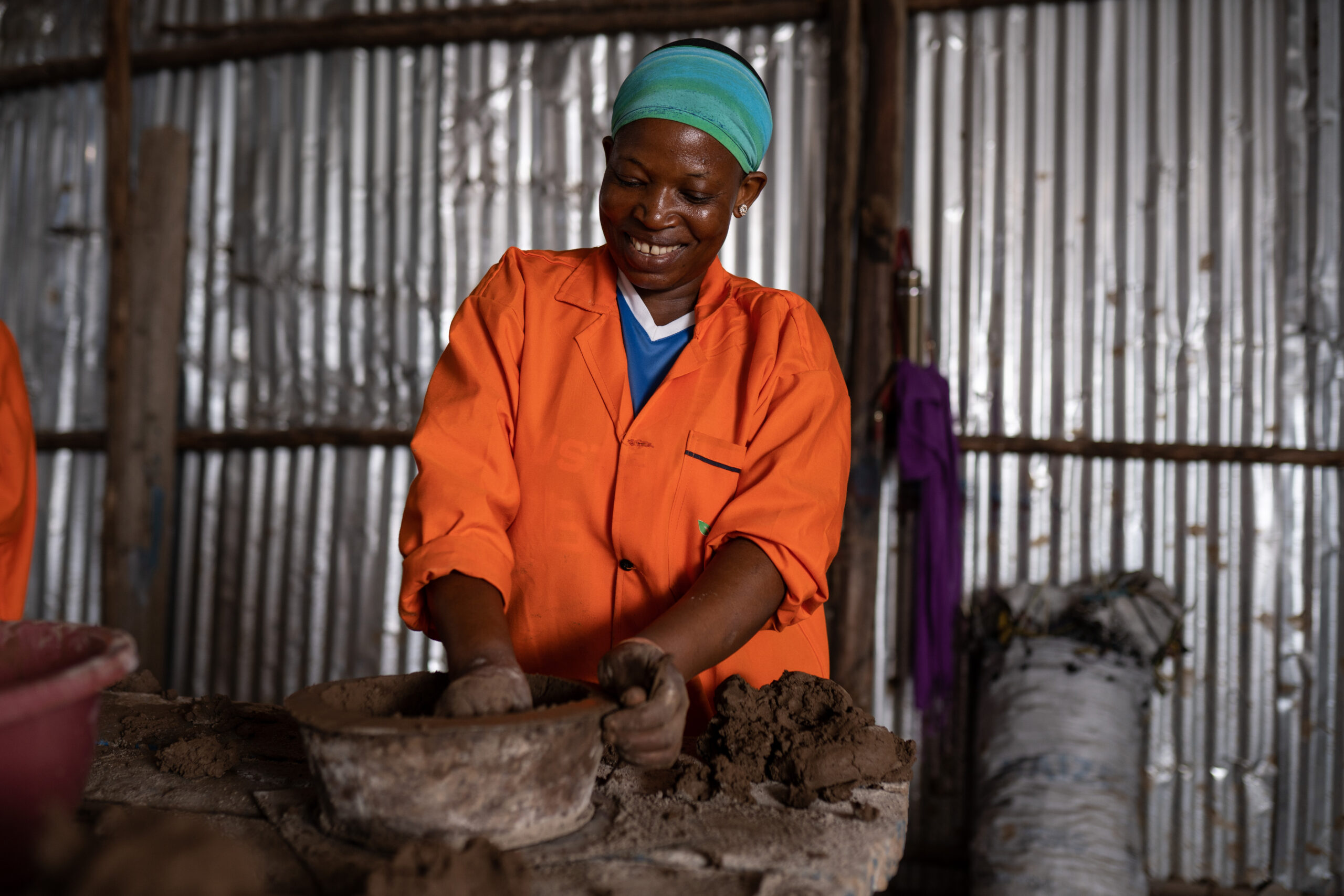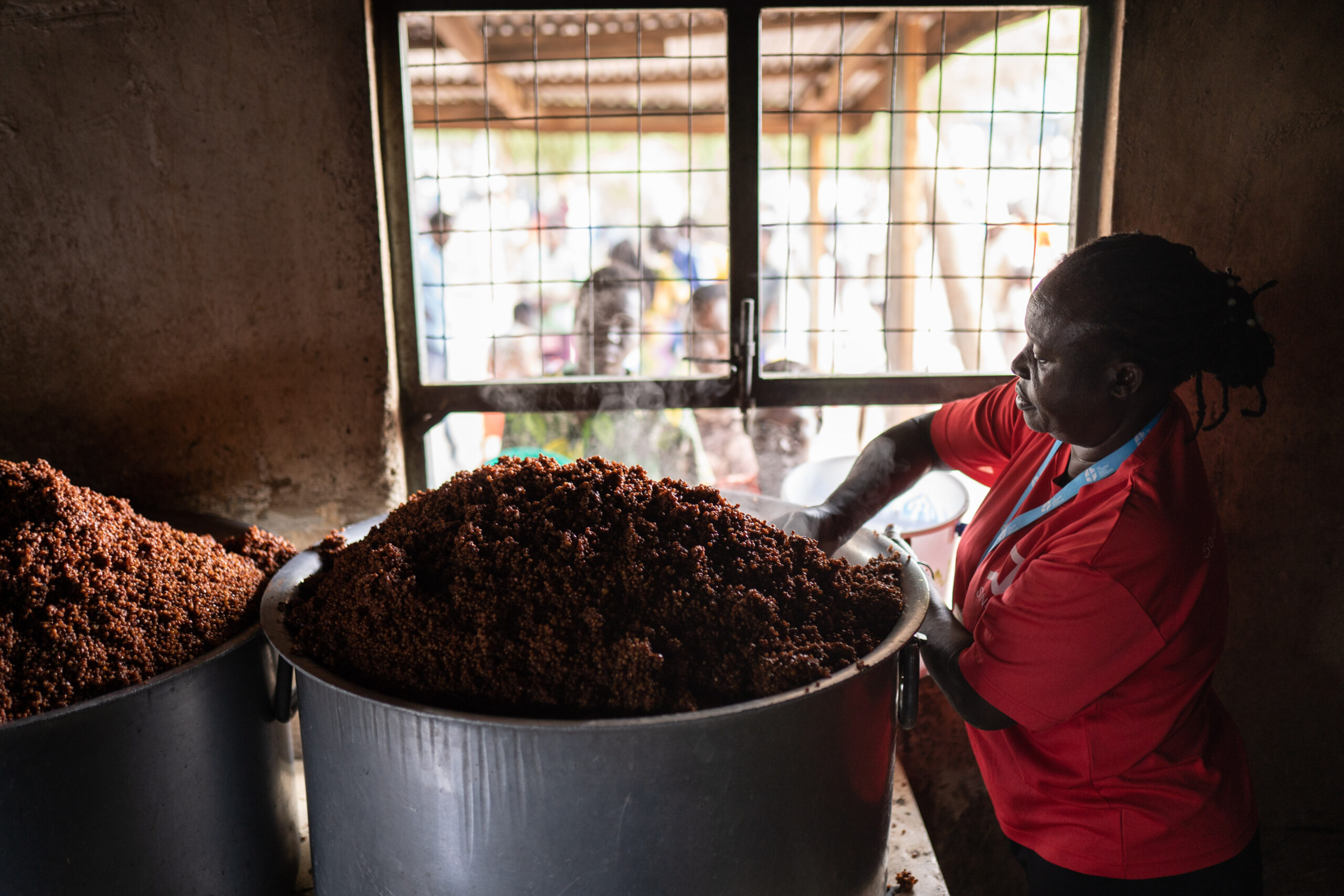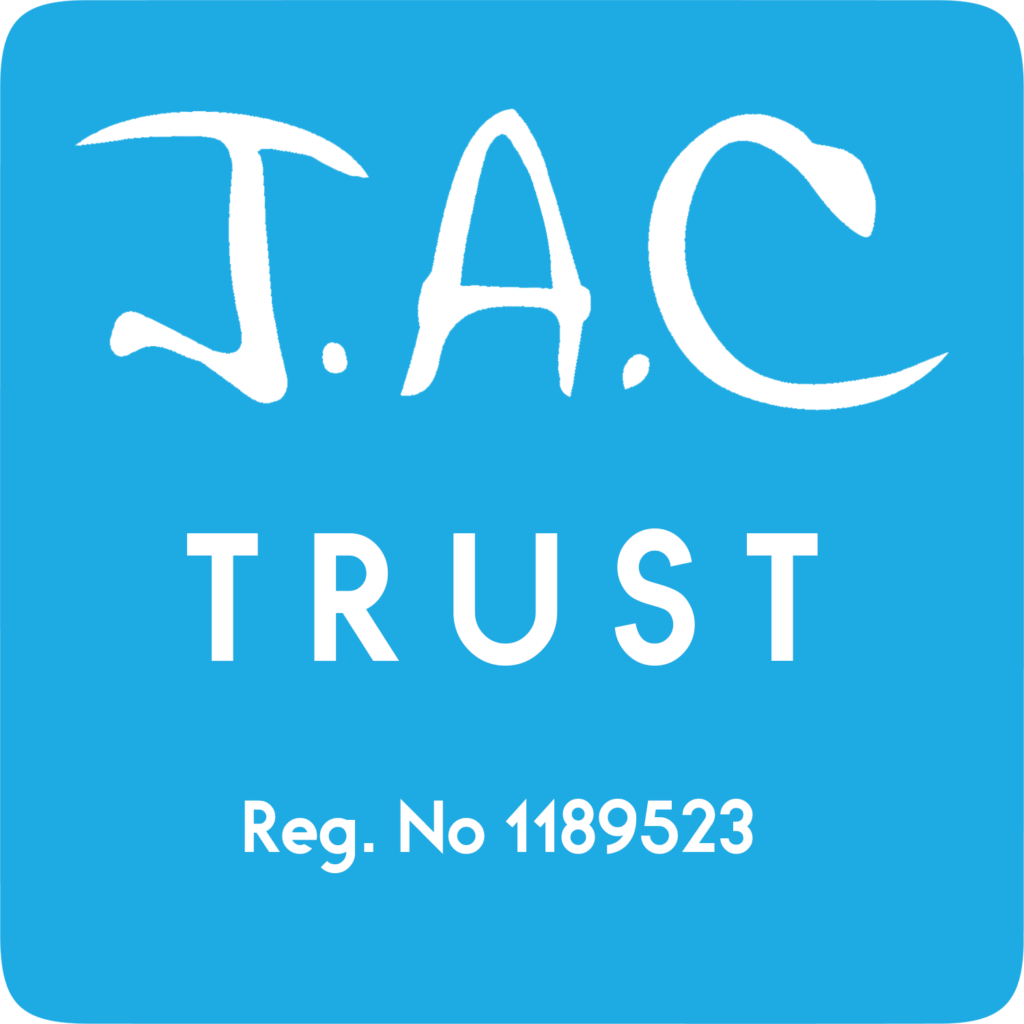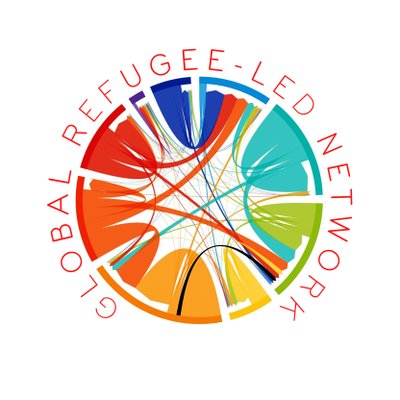Job with USAFI gives Irene a fresh start
USAFI Green Energy directly employs 35 people to manufacture its cookstoves, and contracts 90 to manufacture the briquettes drawn from the host community. 95% of its staff are aged under 35, and 40% are women.
Employees include Irene Nandudu, who had worked as a hairdresser in her native Uganda. She says: “I came here to look for opportunities to sustain my family and my siblings and it was not easy. It took me several months to settle but still I didn’t have a job.
“I fully depended on the relief aid from the United Nations and other organisations. Now that I have a job [making cookstoves], I am saving up to start my salon business here in Kenya and support my children who I left in Uganda.”

"Now that I have a job [making cookstoves], I am saving up to start my salon business here in Kenya and support my children who I left in Uganda."
Stoves are a safer way to feed thousands
The company’s customers include Agnes Kiri, who runs a small café. The stove’s fuel efficiency and quick cooking time help boost her business. She says: “There is less smoke when I use these cookstoves compared to using firewood, so I can cook just in the same room where my customers eat their meals.”
Supa Agule is the supervising cook at Kakuma Reception Centre. Her team use large USAFI Green Energy cookstoves to feed over 3,000 refugees three times a day.
She says: “We used to experience a lot of smoke and heat from this kitchen and most staff fell sick often due to these conditions. This is before we installed these large low carbon cookstoves.”






